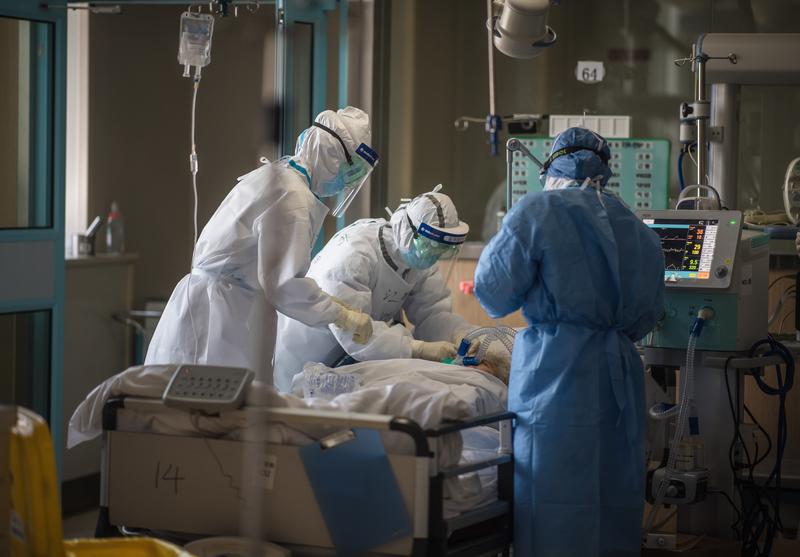 This undated photo shows medical staff members from Jiangsu province working at an intensive care unit ward of the Wuhan No. 1 Hospital in Wuhan. (XIAO YIJIU/XINHUA)
This undated photo shows medical staff members from Jiangsu province working at an intensive care unit ward of the Wuhan No. 1 Hospital in Wuhan. (XIAO YIJIU/XINHUA)
BEIJING - China's National Health Commission on Wednesday unveiled the latest version of the national diagnosis and treatment plan for the novel coronavirus disease (COVID-19), which includes the antibody diagnosis method for the disease.
Patients who test positive for IgM and IgG, two antibodies specific to COVID-19, in their blood serum are confirmed infected with the virus, according to the seventh version of the diagnosis and treatment plan
Patients who test positive for IgM and IgG, two antibodies specific to COVID-19, in their blood serum are confirmed infected with the virus, according to the seventh version of the plan.
Patients whose IgG antibody turns positive from negative or whose IgG antibody level in the recovering phase rises four times or higher than in the acute phase are also confirmed infected with the virus.
READ MORE: State Council's traveling tips during epidemic
The revision was based on experts' analyses on previous medical treatment of the disease, said Mi Feng, a spokesperson for the National Health Commission, at a press conference Wednesday.
The revised version will be conducive to carrying out targeted diagnosis and treatment for different groups, Mi said.
The results of autopsies of COVID-19 victims and pathological observation based on needle biopsies were also included in the latest plan.
The results have shown various degrees of pulmonary mutations as a result of the epidemic, as the patients' spleens significantly shrank, while their myocardial cells also suffered degeneration and necrosis.
ALSO READ: Authorities on alert for imported infections
The authorities also warned against transmission of the virus via aerosol or contact due to environmental pollution caused by the excrement and urine of patients.


